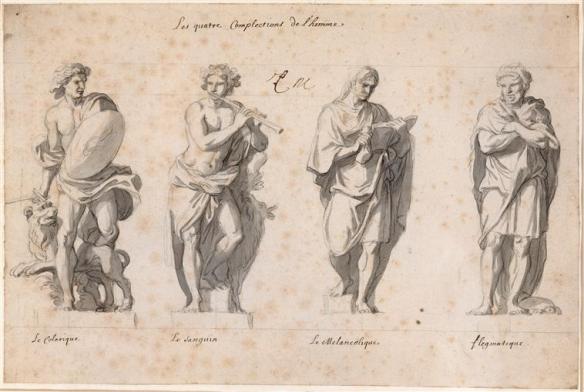Mandated Memoranda reviewed David Keirsey’s book Please Understand Me in a recent series of posts. This book is a useful reference for writers who want to fully flesh out their characters. I created detailed outlines for my personal use. You may profit from the same effort.
This week, we’ll look in more detail at speech characteristics and mannerisms of artisan, guardian, idealist, and rational personalities. Creating authentic dialog and describing specific mannerisms are good ways to flesh out a character.
People who possess an artisan personality type talk about what’s going on at the moment, what is immediately at hand, and that which is specific or individual. They do so without definitions, explanations, fantasies, principles, or hypotheses. In short, they are empirical. Artisans are sensitive to what sounds good. They use colorful phrases, current slang, sensory adjectives, and similes for comparisons.
Comfortable with their bodies, artisans’ most common gesture while speaking is a pawing motion, bent fingers with thumb loose at the side. More aggressive motions are an index finger to jab a point across, a closed fist to pound that point home, or an index finger opposed midjoint by thumb to peck at opponent.
Those who are guardians talk about what’s solid and sensible: commerce, household items, weather, recreation, news items, and personalities. Their speech moves from topic to topic associatively; whatever comes to mind. Never fancy, they use conventional vocabulary and phrasing and favor proverbs and adages.
Guardians avoid showy gestures: an index finger wags warnings, a fist with thumb atop curled index finger (as if holding reins) slows up discussion, and bringing a hand or hands down in a chopping motion emphasizes a statement or cuts off discussion.
Idealists talk about what is seen in the mind’s eye: love, hate, heaven and hell, comedy and tragedy, heart and soul, beliefs, fantasies, possibilities, symbols, temperament, character, and personality. They follow hunches, heed feelings, and intuit peoples’ motives and meanings. They find implications and insinuations in the slightest remark (word magic); this hypersensitivity leads to mistakes now and then.
Extending open hands to others, idealists offer or accept. They row hands like oars or wings to facilitate flow of ideas and words. Idealists bring hands together with fingers wrapped, palms together, fingers vertical, or fingers interlocked, as if trying to hold together two halves of a message in order to reconcile their differences.
Rationals choose the imaginative, conceptual, or inferential things to speak of over the observational, perceptual, or experiential. They avoid the irrelevant, trivial, and redundant in conversation. Their assumption that what’s obvious to them is to others, leading to an overly compact and terse speech style that sometimes loses their audience (to their bafflement.)
Preferring to appear unemotional when they communicate, rationals minimize body language, facial expressions, and non-verbal qualifiers. When they become animated their hand gestures express their need for precision and control. They bend their fingers to grasp the space before them turning and shaping their ideas in the air. They use fingers like a calculator, ticking off points one by one. They arrange small objects (salt and pepper shakers, pens, paperweights, etc.) to map out ideas. Most characteristic is the apposition of thumb to fingers as if bringing an idea or argument to the finest point possible.
***
We’ve said this before: all these traits describe some peoples’ predispositions. Their experiences can mold them, as far as they are willing and able, so that they acquire attributes of the other personality types. These attributes in sum could be said to be their overall dispositions. We covered an example of this kind of change in our posting “Why Are There Four Gospel Accounts?”
As an editor once urged me, “Details are what draw a reader into your story, add them.” If you are a writer, I heartily recommend reading Keirsey’s book for yourself.
The Four Temperaments of Mankind (l. to r.: Idealist, Artisan, Guardian, and Rational,) Preparatory drawing for the sculptors of the Grande Commande, Charles Ie Brun (1619 – 1690), Public Domain in the United States


